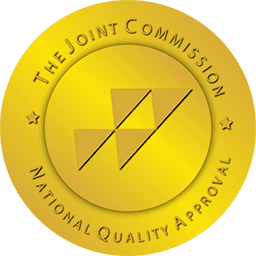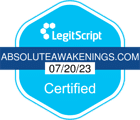- Home
- Treatment
Treatment Designed for You.
Get in touch with Absolute Awakenings today and begin your journey to long-term healing & recovery. - What We Treat
An Experience in Healing
Get in touch with Absolute Awakenings today and begin your journey to long-term healing & recovery. - About
The Rehab You've Been Looking For
Get in touch with Absolute Awakenings today and begin your journey to long-term healing & recovery. - Tour
- Resources
Don't Wait Another Day.
Get in touch with Absolute Awakenings today and begin your journey to long-term healing & recovery. - Admissions
The Rehab You've Been Looking For
Get in touch with Absolute Awakenings today and begin your journey to long-term healing & recovery. - Contact
(866) 627-0196
3000 NJ-10, Morris Plains, NJ 07950
admissions@absoluteawakenings.com
Schedule a Tour Now
Get in touch with Absolute Awakenings today and begin your journey to long-term healing & recovery.
Begin Your Journey Now
Begin Your Journey Now
- Home
- Treatment
Treatment Designed for You.
Get in touch with Absolute Awakenings today and begin your journey to long-term healing & recovery. - What We Treat
An Experience in Healing
Get in touch with Absolute Awakenings today and begin your journey to long-term healing & recovery. - About
The Rehab You've Been Looking For
Get in touch with Absolute Awakenings today and begin your journey to long-term healing & recovery. - Tour
- Resources
Don't Wait Another Day.
Get in touch with Absolute Awakenings today and begin your journey to long-term healing & recovery. - Admissions
The Rehab You've Been Looking For
Get in touch with Absolute Awakenings today and begin your journey to long-term healing & recovery. - Contact
(866) 627-0196
3000 NJ-10, Morris Plains, NJ 07950
admissions@absoluteawakenings.com
Schedule a Tour Now
Get in touch with Absolute Awakenings today and begin your journey to long-term healing & recovery.
How to Treat Mental Illness Without Medication
Treating Mental Health Without Medication
- Written By: Amanda Stevens, B.S.
- Reviewed By: Dr. Po-Chang Hsu, M.D., M.S.
- Updated:
- Published:
- Reading Time: 8 minutes
- Absolute Awakenings Treatment Center
- What We Treat
- Mental Health
- How to Treat Mental Illness Without Medication
Unsure if psychiatric medications are right for you? Find out more about treating mental illness without medications.
While psychotropic medication often takes center stage in addressing health concerns, it’s imperative to recognize that the treatment options for mental illness is far from a one-size-fits-all proposition.[1] While medication undoubtedly plays a crucial role in managing certain conditions, it’s not the exclusive path to healing from mental health challenges.
The journey towards holistic well-being can encompass a broad spectrum of strategies, ranging from psychotherapy and lifestyle adjustments to mindfulness practices and social support networks. By exploring these multifaceted approaches, individuals can discover a new, comprehensive toolkit to nurture their mental health and embark on a transformative path to recovery.
Key Points
- While medication can be an important part of your mental health treatment plan, it’s also not the exclusive path to wellness.
- There are many different kinds of psychiatric medications, all of which target different conditions and symptoms.
- It’s important to collaborate with a medical or mental health professional when making any decisions as to whether or not to include medication in your treatment plan.
- Engaging in therapy, mindfulness, expressive endeavors, and prosocial activities can all have a positive impact on your mental health and outlook.
What are Psychotropic Drugs & What Do They Treat?
Psychotropic medications refer to a broad category of drugs that treat different mental health conditions by working to adjust your neurotransmitter (or brain chemical) levels.[2]
There are five major classes of mental health-based medications:[3]
- Antidepressants: typically used to target depression-based symptoms (such as selective serotonin reuptake inhibitors [SSRIs])
- Anti-anxiety agents: typically used to target anxiety symptoms(such as benzodiazepines)
- Stimulants: typically used to manage attention deficit hyperactivity disorder (ADHD) [such as amphetamines]
- Antipsychotics: typically used to manage the symptoms of psychotic-based disorders (such as Seroquel)
- Mood stabilizers: typically used to treat bipolar disorder (such as lithium)
Do All Mental Illnesses Require Medication?
In the realm of mental health, there’s a wide spectrum of conditions, each with its unique characteristics and treatment considerations—not to mention all the unique considerations of the individual. One common misconception is that medication is the universal solution for all mental illnesses. However, the reality is far more nuanced, and treatment approaches should be tailored to suit your individual needs:
Understanding the Diversity of Mental Illnesses
Mental illnesses encompass a vast array of disorders, including anxiety disorders, mood disorders, psychotic disorders, substance use disorders, and more. The severity and nature of these conditions can vary greatly, influencing the most effective treatment approach for you.
When Medication Should Be Considered
Medication can be an essential tool for managing mental illness, especially in cases where the symptoms are severe, persistent, or significantly impacting daily functioning. Mental health disorders such as major depressive disorder, bipolar disorder, and schizophrenia may often benefit from a combination of medication and other therapies.
The Role of Non-Medication Approaches in Treatment
It’s important to recognize that not all mental health conditions require medication. Milder cases of anxiety, depression, adjustment disorders, and certain phobias, for instance, may respond well to non-medication interventions alone.[4]
A Holistic Approach
Adopting a holistic approach to mental health treatment involves considering various factors, including your individual preferences, specific symptoms, any presence of underlying medical conditions, and the potential side effects of medications. Psychotherapy, lifestyle modifications, mindfulness practices, and social support are powerful components that can play a significant role in managing mental health without relying solely on medication.
Engaging in Collaborative Decision-Making
The decision to use medication should be a collaborative process between the individual and their mental health provider. It’s essential to have open discussions about the benefits, potential side effects, and alternatives available. In many cases, a combination of medication and non-medication approaches can provide a comprehensive and personalized treatment plan.
Exploring Non-Medication Approaches
Before pursuing medication, individuals can explore non-medication approaches to manage their mental health. These methods often focus on building resilience, enhancing coping skills, and addressing the underlying causes of distress. Techniques such as psychotherapy, cognitive-behavioral strategies, and lifestyle modifications can be incredibly effective in improving overall mental well-being.
How Can I Treat Mental Illness Without Medication?
While medication can play a vital role in managing certain mental health conditions, there are various effective strategies to treat mental illness without relying solely on pharmaceutical interventions. These approaches, when tailored to fit your needs, can contribute significantly to improved well-being and quality of life.
Therapy
Psychotherapy, or talk therapy, is a cornerstone of treatment for mental illness. Therapists work with individuals to explore their thoughts, emotions, and behaviors, fostering self-awareness and offering tools to manage challenges. Two common examples of therapy include:
- Cognitive-Behavioral Therapy (CBT): This widely used therapy helps individuals identify and modify negative thought patterns that contribute to distress. CBT equips individuals with practical skills to reframe thoughts and address behavioral patterns that may exacerbate their mental health symptoms.
- Dialectical Behavior Therapy (DBT): Particularly effective for individuals with borderline personality disorder, DBT combines cognitive-behavioral techniques with mindfulness practices. It focuses on emotion regulation, interpersonal effectiveness, distress tolerance, and acceptance of oneself.
Lifestyle Modifications
Adjusting aspects of your daily life can profoundly impact your mental health. These modifications can contribute to a more balanced mood and increased resilience in your daily life:
- Physical Activity: Regular exercise boosts endorphin release, reducing stress and promoting positive emotions. Engaging in activities you enjoy, whether it’s a brisk walk, dancing, or yoga, can positively affect your mental state.
- Nutrition: A diet rich in healthy nutrients provides the building blocks for optimal brain function. Fish-based omega-3 fatty acids can support mood regulation, while antioxidants from fruits and vegetables combat oxidative stress associated with mental health conditions.
- Sleep Hygiene: Prioritize consistent sleep patterns and create a sleep-conducive environment. Quality sleep is crucial for emotional regulation and cognitive function.
Mindfulness and Relaxation Techniques
Mindfulness practices offer tools to navigate challenging thoughts and emotions, promoting a sense of peace and presence.
- Mindfulness Meditation: Mindfulness involves focusing on the present moment without judgment. Regular practice can help manage anxiety and depression by redirecting attention away from rumination.
- Deep Breathing: Practicing deep, intentional breathing activates the body’s relaxation response, reducing stress and promoting a sense of calm.
- Progressive Muscle Relaxation: This technique involves tensing and then releasing different muscle groups to release physical tension and promote relaxation.
Social Supports
Human connections are fundamental to mental well-being. Nurturing healthy relationships and seeking support when needed can alleviate feelings of isolation:
- Connection: Engage with friends, family, or support groups to foster a sense of belonging and understanding.
- Communication: Open conversations about your feelings and challenges with trusted individuals can provide emotional relief and strengthen connections.
Creative Outlets
Participating in various creative activities provides an outlet for emotions and a source of joy:
- Artistic Expression: Drawing, painting, or sculpting can be cathartic ways to channel emotions and promote self-expression.
- Music and Writing: Playing a musical instrument, listening to music, or journaling can provide an avenue for releasing emotions and processing thoughts.
- Dance and Movement: Movement-based activities like dance or tai chi can serve as outlets for self-expression while promoting physical well-being.
Incorporating these strategies into your daily routine can contribute to managing your mental health in holistic ways. Remember that seeking professional guidance and collaborating with mental health providers are essential steps in developing a comprehensive treatment plan that aligns with your individual needs and preferences. By embracing these non-medication approaches, you’re taking proactive steps toward enhancing your mental well-being and quality of life.
Frequently Asked Questions for How to Treat Mental Illness Without Medication
Absolutely. Lifestyle modifications such as regular exercise, a balanced diet, and quality sleep can have a significant impact on mental health. These changes promote the release of neurotransmitters, support brain function, and enhance overall well-being.
Mindfulness techniques (meditation, deep breathing, etc.) increase your awareness of your thoughts and emotions, whether healthy, unhealthy, or neutral. This heightened level of awareness can improve emotional regulation, reduce stress, and improve one’s ability to cope with challenges.
Engaging in creative activities provides an expressive and cathartic outlet for emotions. Art, music, writing, and many other creative pursuits can foster self-expression, reduce stress, and offer a sense of accomplishment and joy.
It’s important to consult your healthcare provider before making any decisions about medication. Suddenly stopping medication can lead to withdrawal symptoms or a recurrence of mental health symptoms. Work with your healthcare professional in tandem to discuss the potential benefits, risks, and appropriate steps if you’re considering changing your treatment plan.
Social support is crucial for mental well-being. Building and maintaining strong relationships provide emotional validation, reduce isolation, and offer opportunities for sharing experiences. Connecting with others can help combat feelings of loneliness and enhance your overall resilience.
- Gass, N. (2023). A need for a holistic approach to mental healthcare. Nature Mental Health, 1(6), 388–388. https://doi.org/10.1038/s44220-023-00079-z on August 29th, 2023
- National Institute of Mental Health. (2022). Mental Health Medications. Www.nimh.nih.gov. https://www.nimh.nih.gov/health/topics/mental-health-medications on August 29th, 2023
- Psychotropic medications: Uses, types, side effects, and more. (2022, October 18). Www.medicalnewstoday.com. https://www.medicalnewstoday.com/articles/psychotropic-medications#boxed-warnings on August 30th, 2023
- Natural Relief for Depression. (n.d.). Www.hopkinsmedicine.org. https://www.hopkinsmedicine.org/health/wellness-and-prevention/natural-relief-for-depression on August 30th, 2023
Mental Health Resources
- Mental Health Facilities in New Jersey
- Best Psychiatric Hospitals in New Jersey
- New Jersey Mental Health Hotlines
- Mental Illness vs Mental Disorder: What Is The Difference?
- What To Do If You’re Struggling with Mental Health Concerns
- Is Alcoholism a Mental Illness?
- How to Treat Mental Illness Without Medication
About Treatment
Recent Articles
-
How Are New Drugs Named? The Process Explained!
May 21, 2024 -
Understanding Polymyxin B: Drug Class Explained
May 15, 2024
Begin Your Journey to Long-Term Healing
Make the Call. Change Your Life.
Yes, You Can Get Your Life Back...
With our trained and compassionate professionals in your corner, freedom can be yours. All it takes is you choose yourself. Choosing a better tomorrow.
© Copyright 2024. All Rights Reserved. AATC.
- Terms & Conditions
- Privacy Policy













